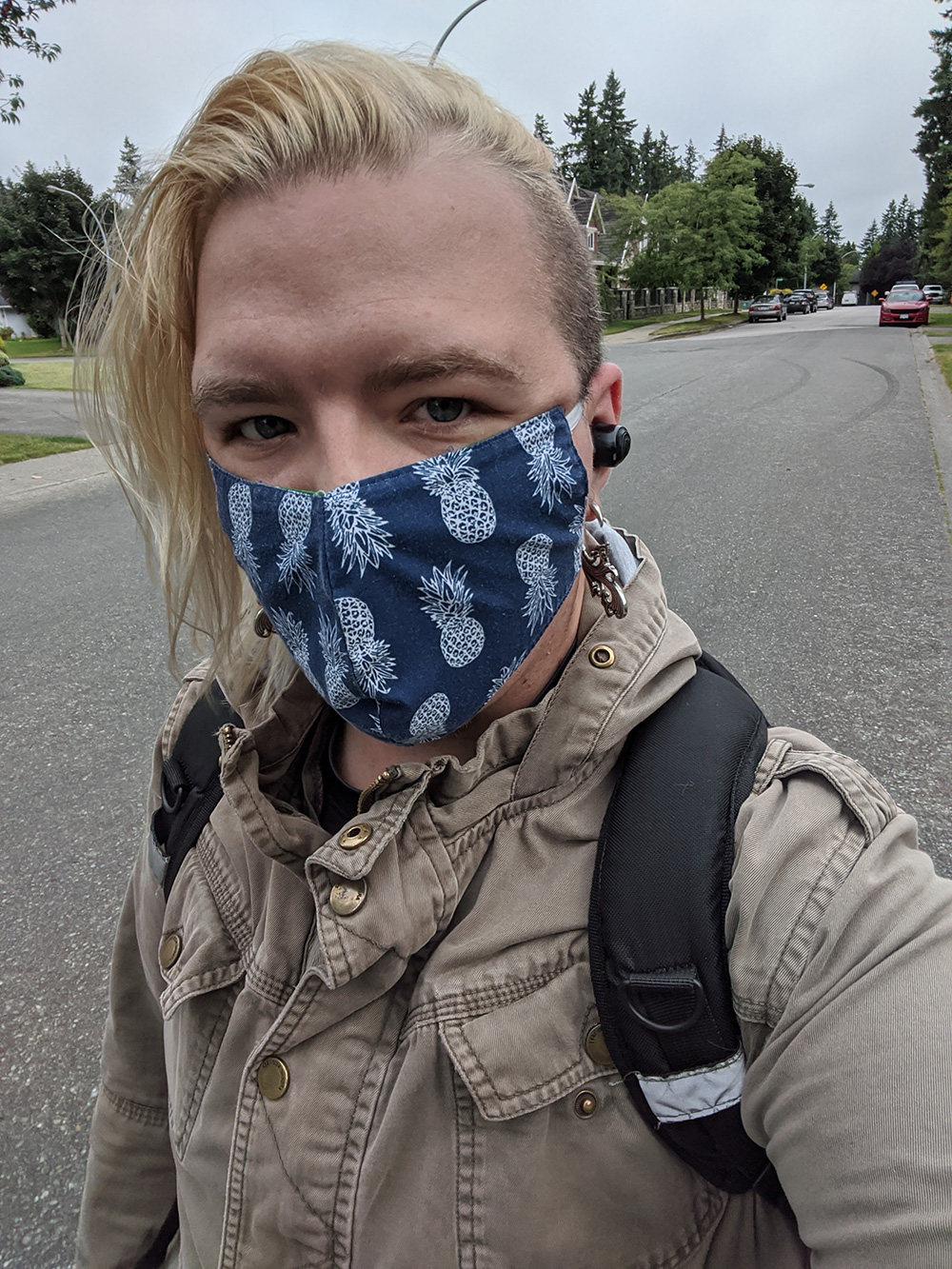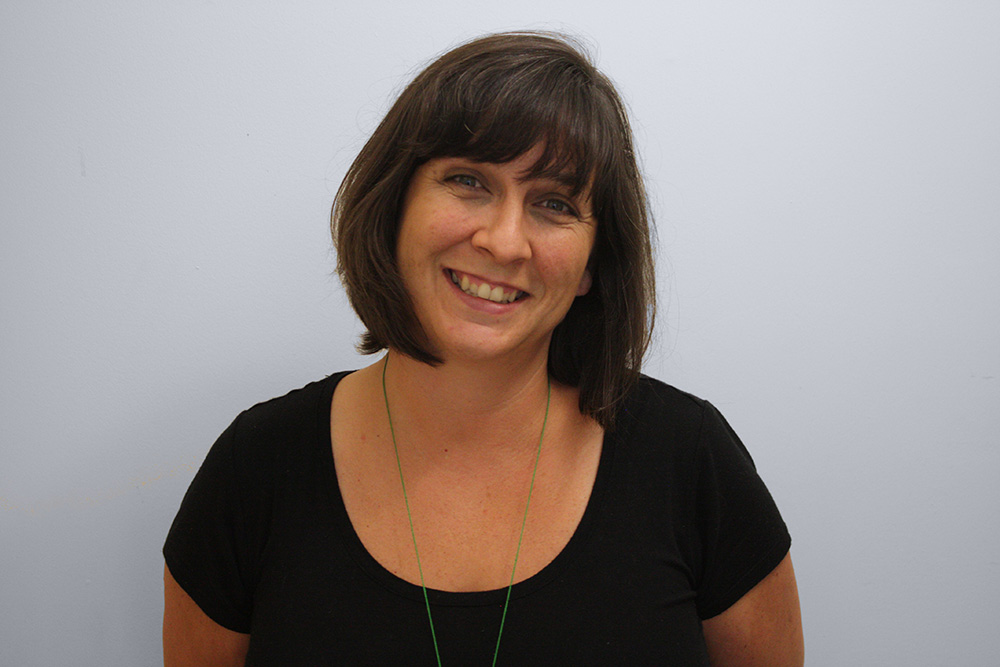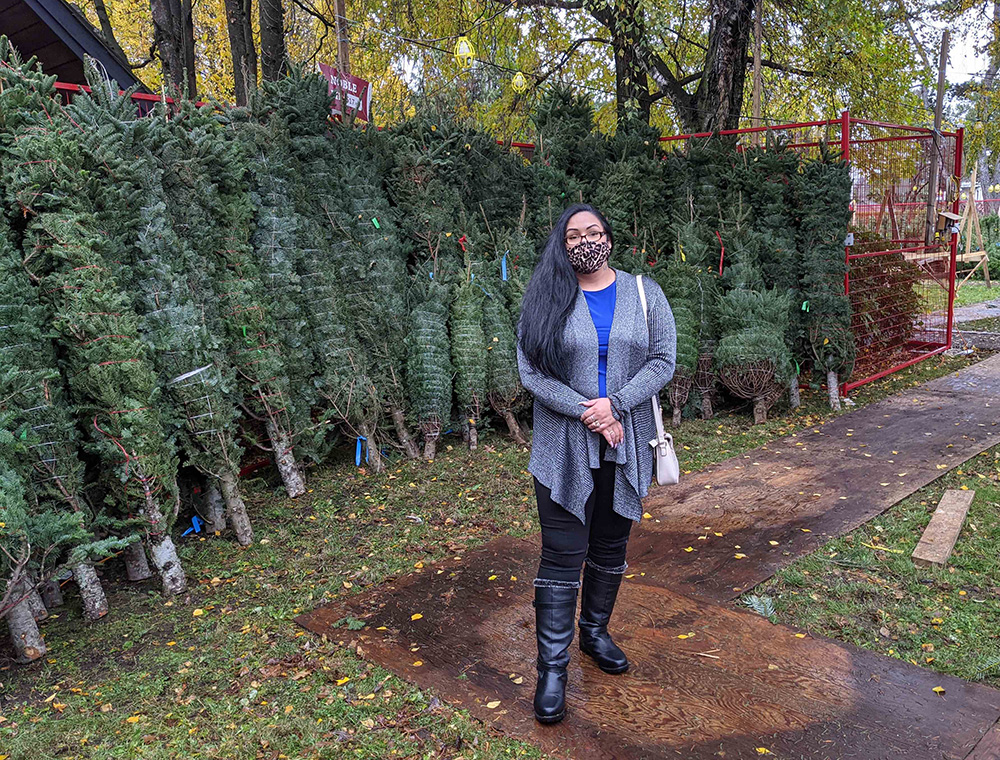The pandemic has been tough for Rain Vanderwall. But it would have been a lot worse if the 25-year-old didn’t have support from the non-profit Aunt Leah’s Place.
Despite working full time as a security guard, Vanderwall struggled to cover expenses for themself, their dad and their five pets.
“I was in a really toxic home with my father at the time, I was taking care of him,” said Vanderwall. “I couldn’t afford food or bus passes, so I was able to go to Aunt Leah’s or meet up with a worker and I was able to get food... and get bus passes to be able to go to work.”
Vanderwall, who was part of the child welfare system off and on from the time they were nine, participates in Aunt Leah’s the Link program.
The Link is a life-skills program that offers a continuum of care for youth 19 and older, providing the kind of support they would get if they had parents or other family to lean on. That might mean supplying food and bus passes, helping them find housing and applying for subsidies and programs if necessary.
Youth from care need the help because the provincial government cuts off access to most supports as soon as people turn 19.
It’s also an accredited life-skills program under the B.C. government’s Agreements with Young Adults program, which provides young people from care up to $1,250 per month if they’re enrolled in approved post-secondary, life-skills or addictions programs.
It was thanks to the Link that Vanderwall was able to find their own place. They now live closer to work, cutting their daily commute down to 2.5 hours from four and allowing them time to volunteer with Aunt Leah’s.

“Even before the pandemic, Aunt Leah’s has been one of those organizations that has actively reached out and made sure that I was OK. They always wanted me to live my best life,” Vanderwall said.
Aunt Leah’s Place is one of the few non-profits supporting youth from care of any age, working with about 350 young people annually. It offers the transitional support that the Representative for Children and Youth has called on the provincial government to start providing until youth from care turn age 27.
A recent report from the representative’s office outlined what that support should look like, including designated housing units for youth transitioning out of care; a system of transition workers for young people; paying foster parents or group homes to house youth beyond their 19th birthdays; and establishing a mental health and substance use plan for those leaving care.
Sarah Stewart, executive director of Aunt Leah’s Place, agrees with those recommendations. That’s what her organization has been providing or asking the Ministry of Children and Family Development to provide for years, she said.
“All that Aunt Leah’s has ever done is work to fill in the gaps. So that’s what we’re going to continue doing. We don’t see anything drastically changing for us in our work,” Stewart said.

The representative’s report highlighted Aunt Leah’s as a “Bright Spot” for the programming it provides young people in and transitioning out of care.
But Stewart has noticed changes from the Children’s Ministry on support for youth from care that gives her some hope. Changes like expanding the Agreements with Young Adults program and offering tuition waivers for youth from care.
“There’s a recent history that would indicate more confidence that change might come,” she said.
Other Aunt Leah’s supports include a partnership with Dan’s Legacy, a charity that provides youth with access to trauma-informed counselling and referrals for addictions treatment; Branches, a life-skills and housing program for youth still in care; Thresholds, a program for young moms in care and their babies; and access to semi-independent and independent housing units.
Sherry Michell, 27, has been depending on support from Aunt Leah’s since experiencing homelessness with her infant daughter a decade ago. Just 16 at the time, Michell put herself into the child welfare system, which introduced her to Aunt Leah’s.
Aunt Leah’s accepted Michell into their Thresholds program for moms under 19 who are at risk of losing their kids to the child welfare system. Two years later, Aunt Leah’s helped Michell and her daughter move into their own apartment.
Michell, who is Wet’suwet’en, was part of the Indigenous majority of kids in care in B.C., where two-thirds of kids and youth in the child welfare system identify as Indigenous.
Even with support from Aunt Leah’s, Michell struggled, going on income assistance when she transitioned out of care at age 19. She’s not alone: almost half of the 850 young people who transition out of care annually end up receiving income assistance within six months of leaving care.
Michell’s daughter temporarily ended up in care herself when Michell was in her early 20s.
“I lost a big chunk of my family in 2014, so I ended up going MIA for a couple of years,” she said. “Once I started to pick myself back up again, Aunt Leah’s was able to place me in one of their homes in 2018.”
With a safe place to live, life-skills and workplace training and support from Aunt Leah’s workers, Michell got a job and regained custody of her daughter. The two live in Aunt Leah’s independent living suite, which is below the organization’s semi-independent housing and across the street from her daughter’s school.
“They support me in being able to look out for her after school and until I get home, same as in the morning,” said Michell, who now works full time.
For Michell, Aunt Leah’s has been the transition support the Representative for Children and Youth is calling on the ministry to provide youth from care. It’s the kind of support she wants to see all youth in and from care receive.
“I feel like there could be some sort of advocacy worker or more approachable worker that would be able to mentor them into what to expect and give them a gentle hand,” she said, adding higher income assistance rates would also help.
For Candy Fine, 24, Aunt Leah’s helped them avoid homelessness just as the pandemic was ramping up in B.C. last March by placing them in Lale House, its semi-independent housing site.
It wasn’t the first time Fine has been housed through Aunt Leah’s. They also found housing and support through the non-profit when they were 17, after experiencing two years living on the streets.
“[It was a] huge support when I was under the age of 19, because they helped me with learning to do very basic adult things at a very young age,” said Fine. “But also, [there’s] the fact that when you turn 19 and are part of the ministry care, you don’t have any support. You’re left to fend for yourself.”
For Fine, Aunt Leah’s has been both their safety net and their family.
“Because I don’t have the luxury of being a 24-year-old who gets to live with their parents or gets to go home and have their parents cook them meals or do their laundry... for me to have Aunt Leah’s, is basically like having a family.”
Fine, who is Métis and 'Mi'kmaw, found themselves depending on Aunt Leah’s workers — and friends — for mental health support during the pandemic, support which included online counselling and check-ins with support workers.
Aunt Leah’s workers had to scramble this year to align their programming with COVID-19 protocols, transitioning much of their programming online. Youth they worked with were also reporting an increase in substance use and self-harm during isolation.
They’ve since returned to limited drop-in times at their New Westminster headquarters, but it still isn’t bustling with youth like it was pre-pandemic.
Overall, says Stewart, it’s been a struggle for all caregivers, including teachers, support and social workers.
“The pandemic pay, that was nice and everything, but it’s a pretty depleted sector. It’s going to be interesting to see how the caring community recovers from this,” she said.
*Story caption corrected Dec. 23 at 9:40 a.m. ![]()
Read more: Rights + Justice, BC Politics

















Tyee Commenting Guidelines
Comments that violate guidelines risk being deleted, and violations may result in a temporary or permanent user ban. Maintain the spirit of good conversation to stay in the discussion.
*Please note The Tyee is not a forum for spreading misinformation about COVID-19, denying its existence or minimizing its risk to public health.
Do:
Do not: